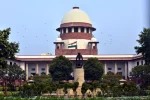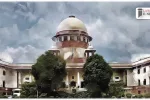Criminal proceedings can be quashed if the complaint/FIR doesn’t mention the accused’s crime- Supreme Court
The Supreme Court noted that when the allegation upon which a FIR was formed does not disclose any act of the accused or their participation in the commission of crime, the criminal proceedings may be invalidated.
A charge sheet was submitted in this matter under Sections 420, 467, 468, 471, 504, 506, 448, and 387 of the IPC, and a FIR was filed against the accused. They went to the Allahabad High Court to ask for the FIR and Charge Sheet to be thrown out. They moved the Supreme Court since the High Court dismissed the case.
The appeals court’s panel of Justices Ajay Rastogi and CT Ravikumar remarked that the High Court had not looked into the specifics of the complaint or how the current defendants are connected to the alleged crime in any way.
The court then made reference to the rules established in State of Haryana and Others v. Bhajan Lal and Others, in particular the following categories: (3) Where the uncontested claims made in the FIR or complaint and the evidence gathered in support of those claims do not reveal the commission of any offence and make out a case against the accused.
(5) When the charges contained in the FIR or complaint are so ludicrous and implausible that no reasonable person could possibly draw a fair conclusion on the basis of them, there is adequate justification for taking action against the accused.
It was noted that categories (1) and (3) fully apply to the current situation “The de facto complainant/second respondent’s request for the registration of a FIR on the basis of the complaint does not reveal any actions by the present appellants or their involvement in any criminal activity. They are neither parties to the civil proceedings nor involved with the registered sale deed dated 4 May 1977 or the later sale deed executed in favour of the de facto complainant by Shravan Kumar Gupta dated 22 December 2018, nor are they in possession of the subject property. It is also not the complainant’s case that the appellants had any involvement, active or passive, in the drafting of the document or that they served as facilitators or witnesses to the document in question. What appears to have happened is that the de-facto complainant has accused the current appellants of being related to him or her in an effort to exert pressure for possession of the subject property and the resolution of the ongoing civil dispute between Vinod and Shravan Gupta and the de-facto complainant “The appeal was allowed, the court ruled, adding.
Ramesh Chandra Gupta
vs
State of U P






